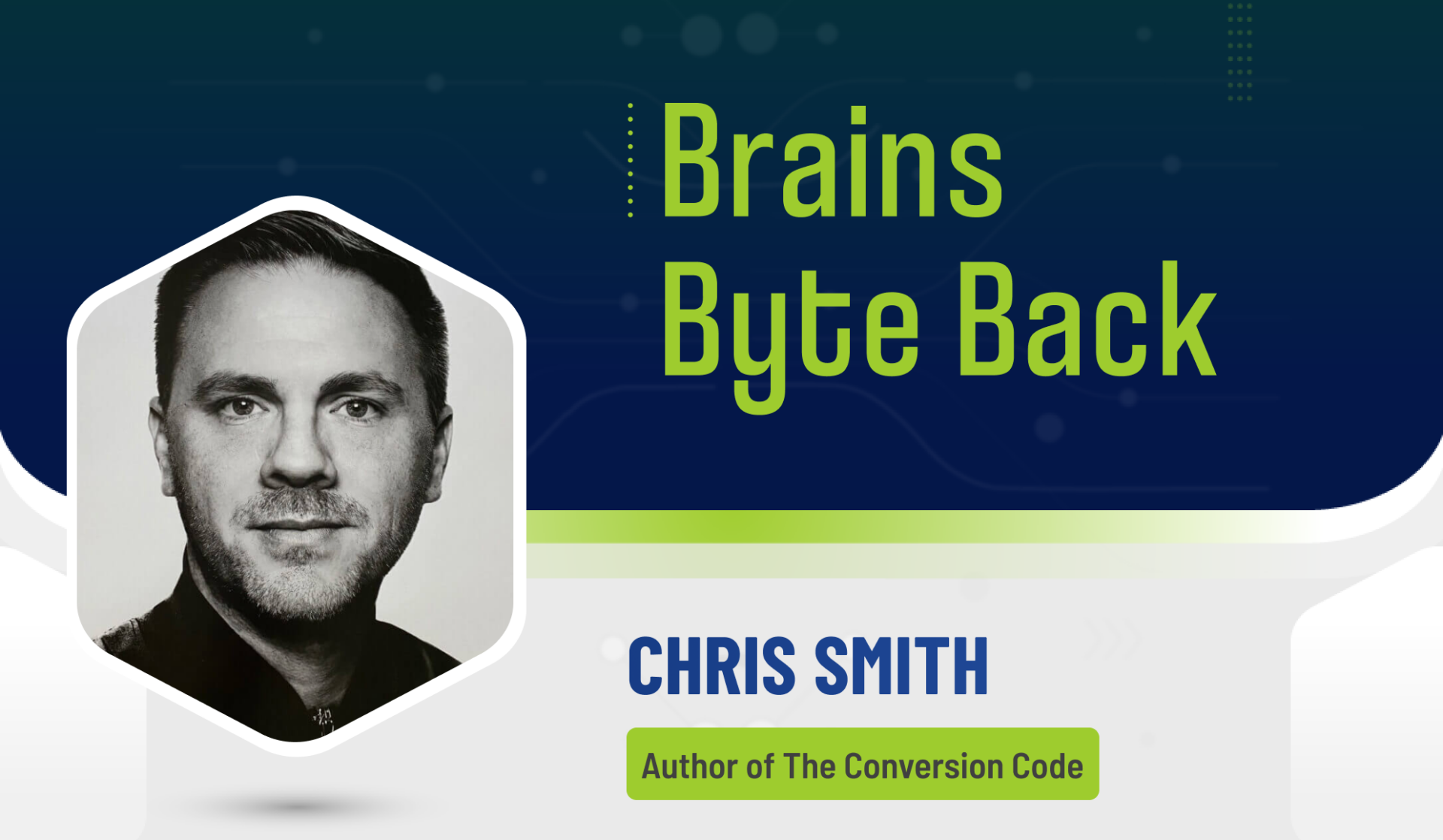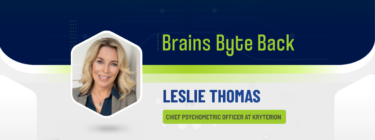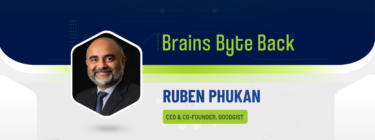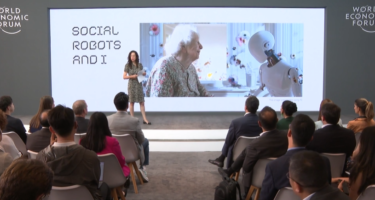Historically speaking, sales and marketing have suffered from negative stereotypes thanks to salespeople using unethical, questionable tactics. And even in today’s modern world, you’ve probably heard of “Bro Marketing” which is considered the use of manipulative marketing tactics that put someone in a vulnerable state and pressure them into making a purchase decision.
Well, for those who want to boost their sales and marketing results, and do it the right way without losing sleep at night. This episode is for you because, in today’s episode of the Brains Byte Back podcast, we speak with Chris Smith, author of The Conversion Code, a book that provides a step-by-step blueprint for increasing sales in the modern, Internet-driven era.
You can listen to the episode below, or on Spotify, Anchor, Apple Podcasts, Breaker, Google Podcasts, Stitcher, Overcast, Listen Notes, PodBean, and Radio Public.
Alternatively, you can find a transcript below:
Chris: My name is Chris Smith. I’m a very normal person. I’m from a small place. I grew up in the country around, you know, orange groves and cow pastures and chicken farms, and I was just crazy enough to think I could figure out how to get out of there and do something cool with my life. And the way that I ultimately ended up doing that thought it was gonna be sports and I thought it was gonna be acting and it just ended up basically being marketing and sales. So I love business. I’m very competitive with that. I have had an awesome career. Worked for some amazing companies, and now I write books. I write books about business. I’ve written four books and the most recent book is called The Conversion Code. It is used at schools like Johns Hopkins and N Y U to basically teach people how to do marketing. I would call it the right and modern way to do it in a way where you’re not chasing people and annoying them as opposed to doing it the way I like to try to do it, which is where you’re attracting people and they kind of close themselves. You don’t have to really give ’em a big sales pitch. So, yeah, that’s me in a nutshell.
Sam: Oh, Chris, I think you’re being far too modest. You, you are far from normal and from what I can see, you’ve, you’ve done some fantastic things. I’m really happy to have you on here and I’m super excited to be talking about your book, but before we do get into that, I do wanna know, like, can you share with our listeners what Curaytor is and how it works, please?
Chris: Sure. Yeah. Curaytor is my company that I started because I was, you know, working in the real estate industry. I was working for companies like Zillow, Dotloop, Realtor.com, Quicken Loans, Rocket Mortgage, and some of these big real estate tech companies, and part of my job was to be a speaker and a presenter, a kind of trainer. And every time I did it, there would be, a line of maybe 10, or 15 people and they would all come over and try to hire me to just do what I had taught them. So they were learning about social media, and I would do a class and they would be fired up with nowhere to go because they would have nobody on their team that knew what to do, they didn’t have time, but they had money. Typically, the people that would line up were the ones that were the richest, the most successful. And they just wanted to hire me. And I wasn’t allowed to say yes because I had a great job and was a very ethical and moral person. And so I just kept saying no, and no, and no. And eventually, it was kind of like if somebody says, your kid is cute a million times, you finally believe them. And so I just decided. It was a sign, it wasn’t an accident. The universe was literally saying, start a company that does that. And so I did and it blew up right away. And we made the Inc list. We do basically advanced marketing and advertising. We set appointments with internet leads for real estate agents so that they can focus on the conversation with the lead versus capturing the lead and following up with the lead and hoping the lead answers and hoping the lead can talk right now. And that’s a tricky thing for a realtor to do that’s busy. So we basically do their marketing and follow up and they get the leads from us when it’s on their calendar and it’s been vetted and, and it’s legit and they actually wanna talk to somebody, which is not the case with most leads.
Sam: Awesome. Well, it really does sound like it’s anything but an accident, because, I mean, it sounds like you are adding genuine value for those that you’re working with, and I’d be really curious to know, like do you have any case studies of how your clients or those that you’ve worked with have been positively impacted by your services?
Chris: Sure. I mean I think people take too much credit for other people’s success. I think people are typically successful because of them, not because of their code or their website or something like that. But I do think. People that are open-minded, that are innovative, that are forward-thinking, that are looking for a competitive advantage, and love it and it’s their passion. And they love to compete. You know those types of folks, they are the kind of people that we attract. And so when you attract people that are by nature, Looking to double or triple or quadruple their business it, it just makes it easier for us as the vendor to help them do that. The number one factor in whether a client is successful or not is the client. It’s not Curaytor and it’s not even the client’s skills. It’s the client’s mindset setting goals. And so when they come on board and say, Chris, I’m gonna triple my business, I just don’t know how to get there. We, in most cases, can help someone triple, or quadruple their business. Now, is it because we’re ninjas? That’s a little bit. It’s more so because of the moment in time that we’re experiencing because right now we’re in an internet digital social revolution. It is a people revolution. There’s like an electrical grid around the whole world. That’s people. So we’re all connected. We’re all digital. We’ve got AI, we’ve got social, we’ve got mobile, we’ve got the bandwidth, and we’ve got Starlink. Right? And it’s just kind of like, okay. Now everybody has that and now that doesn’t make anything different anymore. So I think that when, when people think about helping their clients succeed, you probably shouldn’t get so focused on case studies. But of course, you want to have some case studies because the reality is that everybody’s path to quadrupling is different. The average Curaytor client triples their business in the first two years. But I can’t say for sure that they wouldn’t have without us. I feel like we’re the only ones that are like, willing to say it out loud, but, you know, I think that that makes sense. The reality would be if we bring on a client that triples their business in the first year, they probably would’ve doubled and then adding us is like adding an Iron Man suit. So that helped ’em triple it. I don’t think that we should ever think that we’re the reason they tripled it cause we’re not even the reason they got what they tripled.
Sam: I get that and as a Marvel nerd myself, I do love the fact that you use the Iron Man analogy there. I also have to say that in this kind of environment, which I’m so used to seeing where there’s like marketing and sales and people most thing about how they can achieve these things, I often find that it’s, it’s so entrenched with like a sense ego or aggression. But speaking with you, it’s so wonderful because I get the sensation from you that you are very zen, you’re very chill, you’re very relaxed. It’s very refreshing to have this kind of outlook when it comes to this sort of thing personally.
Chris: Well, it took me a long time to get there, so I don’t wanna act like I woke up like this, but Gary V is right. You know, if you can figure out a way to do what you love, it’s gonna be way more valuable than figuring out a way to make some superfluous amount of money that you have been told growing up was sort of successful, cuz at least most of the people that I meet that hit the number they thought was gonna be the one that made ’em happy it just keeps moving. I know that’s been the case for me. You know, I want to make a hundred thousand a year. I wanna make a quarter million, or I want to make a million, or I want to have this much net worth. And those milestones, I think are good so that you understand you have more to give. But I don’t think they should necessarily define people’s success, uh, you know, for me personally. If I could, if I love to write, or if I love to take pictures, I just think life is better when you’re doing what you truly enjoy. I just happen to be lucky that what I truly enjoy is a highly valued skill, but I didn’t choose that. I didn’t like set out like, okay, what can I learn so that I’ll make the most? You know I’d never had that meeting with myself. I just knew where my life was meant to go, and now it’s like, oh crap, I got a lot of money. And then once you have money, Sam, that is when things really kick in because then you can truly come from contribution. And as we’ve seen countless times over hundreds of years, money, typically evil, either turn someone evil or better. Right. They either get gooder or evil or, and it’s just so clear to me. So now, because I don’t need anybody’s help, I don’t need to work with anyone because of that, I’m only working with the right people and I love every project that I’m working on and yeah, it does. It does take a little bit of a level of financial freedom to have that mindset, but not really. I mean, you can kind of have that mindset even before you’ve made it. It’s probably the best time to have it, but, it is tricky to sort of untrain yourself. The goals in business are financial. I, I understand that. That’s an odd approach that I take.
Sam: Well, I’m glad it’s worked out for you and I’m glad you have arrived at this place in your life your energy is very infectious I can feel it even through the mic.
Chris: I’m in Colombia with you, Sam. I’m down there with you, my friend. I’m in the room. Thanks. You know, I appreciate you saying these things is really nice cuz the people that I admire, like Rick Rubin, I don’t, I dunno if you’ve ever heard of Rick Rubin. He’s such a smart guy. He just came out with a new book. It’s called The Creative Way. You know, Deepak Chopra has a new book called Metahuman. These are really, really smart people. That’s what I said. I’m not anyone special. Like I’m just not an intellectual and I’m, I’m okay with that. You know, I know that, uh, my son, as an example, is really, really smart by the sort of world’s definition of being smart, and when I find somebody that I think is brilliant, uh, I just sort of hang on their every word. I just think maybe people are a little bit too quick to define someone as brilliant. And so the Yodas are the ones to look for sure.
Sam: That makes absolute sense. And, obviously, you’ve touched on books there, and that’s one of the reasons that we’ve got you on the show today. I wanna get into a little bit more about The Conversion Code, your book. Can you share where the inspiration came from to create this?
Chris: Yeah. It actually came from my clients. You know, I was working with Curaytor and they had all sort of hired me and you know, they had us do social media for them and they had us do, you know, marketing for them and it works, right? And when you start doing that, now you have a new problem, which is, what do I do with all these leads? They’re not answering the phone. They hang up on me. They tell me to go screw myself. It was a new paradigm for our industry to get on a phone with a stranger because you know, the real estate industry for decades was repeat and referral business. It was networking you literally would get the most listings if you went to the most parties, right? So that was a really fun time. And the reason it was able to be that way is because they had a monopoly on the data. So the data in real estate was actually in a. that you could only get if you were a realtor and you would lock it at your desk every night. And so if anybody wanted to know about any of the listings, they’d have to come to you, sit right there at your desk, and you’d have to pull it out for ’em. And then of course, it would change all the time, right? Change every single week. So the realtors had the data, they had the leverage. And then what happened with, you know, the internet and with sort of the modern world we’re in is that, you know, Zillow quite frankly took a hammer and shattered that monopoly and they freed that data, if you will. And that data became available to all of us. And so the biggest challenge, and this is probably similar for all other industries too, I don’t, I don’t think real estate’s unique to sort of having to adapt in a big way cuz of data in the internet. But in real estate, that was their unique value proposition. That was their leverage and their leverage had been taken from them. And they’ve been scrambling ever since, Sam, to figure out a new value pro. and what they realized through all of this innovation is that their value proposition is just to be the most awesome human being they can be. And to just keep their feet on the ground and focus on the client in front of them and help them navigate their challenge because it is a tough thing. I went into Chat GPT the other day and I said, will there still be real estate agents in 2040? And ironically, the AI said there because it’s gonna always be a little complex. Everybody’s situation is a little different, you know, and it’s such a large transaction. You can go sell shoes or trading cards, you know, on eBay or Facebook marketplace, but most people only have three to five homes in their whole life. And it is also most people’s largest financial asset. And it’s the number one way people get into the middle class. It’s just a really important thing to help somebody with. So when you, when you meet the realtors that are amazing, like they have a little bit of Yoda in them too, you know, for their clients.
Sam: You’ve got me curious, actually I’m thinking after this call, I may have to go and ask Chat GPT If there’s gonna be podcast hosts in 2014.
Chris: I reckon, I’ll tell you what it’s gonna say. It’s gonna say there’s gonna be a lot less.
Sam: Yeah, I know that. I realize I have to make the most of these days while they count before AI takes over. But, otherwise, yeah, it’s a really interesting space to be in. I love operating in this space, looking at psychology technology because certainly, it’s interesting how innovation mixed with technology can completely disrupt an industry overnight, and you kind of mentioned that there. So it, it really is like fascinating and this is something that we, we haven’t really looked into this kind of industry before, like realty or, or anything like that. It’s not a heavy thing that we’ve looked at the show. So it’s cool to chat with you about this and obviously, I would encourage all of our listeners to go away and check out your book, but would you be able to share with us some cool insights now that might interest our listeners or give them a taste of what they can expect from the.
Chris: Sure, no problem. Yeah, I would say some of the things that people, when they learn, they sort of open their eyes a little bit. Part of it is the privacy stuff. So if you think about, you know, how many spam emails we get, robo calls we’re inundated with, with marketing and messaging that we, you know, are trying to tune out, you know, it’s called banner blindness, right? On the internet. You just, you just don’t even see the banners. And so the technology companies like Google and Apple and Facebook as, as well as the, basically the phone providers have said, you know, people are pissed. So they’re starting to put these like laws and, and sort of call it rules in place that disallow these annoying tactics. So, as an example, if you go to a website, Sam, I’m sure you’ve seen this probably multiple times today. You know, it says that do you want to accept cookies? Right? Oh yeah. And that kinda of ruined the whole internet like, what the heck? Why do we have to do that? So stupid. But I understand why. And same thing with Apple. You know, Apple is really, and I think this probably started when Steve Jobs was obviously the visionary behind the company, but they have been truly committed to privacy out of the gates and privacy nowadays. Letting people know that use the app on their phone that they’re tracking you, not even just on the websites. Now the, the phones will pop up and say, do you want to allow tracking? Even now, this is a new one, Sam, the email client. So if you have Apple mail and you get an email from somebody like me that you’re on my email list, uh, it’s gonna pop up and it’s gonna say, Hey, do you want Chris to know if you opened or clicked this email? And I don’t know why I can give you the specific numbers, but you can imagine most people say no to all these questions. Cookies, no. Track me. No, no. If I open my email, no. So we’re just kind of at this point where all of this spam has to kind of cleanse itself of multiple decades of being acceptable and it just takes time. So I’d say that would be a big trend to be looking at is what are the things that are going away. Like when you call someone and, uh, they’re not expecting your call and you got their number from some, you know, list that you bought or something. Well, now it says spam like on the phone it didn’t even use to say spam on the phone. And why, why does it say that? Well, cuz people tried to trick people into calling them using their own area code. I had one time. that I called myself. I’m literally standing here and I got my phone in my hand and it’s ringing and it’s me calling Sam because they’re using these advanced technologies to hack into phone numbers that are sort of likely to get answered. And I don’t know if the algorithm just malfunctions every now and then, but I have gotten calls for myself and so. For every action, there is an equal and opposite reaction. Mm-hmm. . And so this idea, if you go back a little bit and say, okay, let’s talk about SEO. Well, everybody tried to cheat and, you know, talk about, uh, all these sorts of opportunities. Gary V is so eloquent when he says marketers ruin everything is completely right.
Sam: Yeah. I’m not gonna miss those cookies at all. I definitely would recommend everyone to go check that out. And I’m also interested to know, like, obviously you got the book out, but what else are you working on at the moment and like, what’s next? What have you got in the pipeline? What are you focusing on at the moment for the near future?
Chris: Yeah, thank you for asking. You know, the book is sort of in the middle of my diagram, right? It’s the thing that I’m the most well-known for. It’s what I put the most time and effort and energy into. And then things kind of spawn from the opportunities that, that. Right now, my, the thing I’m working on that I’m the most excited about is actually called Business Legends, and it’s a collectibles company, so kind of like tops or kind of like fanatics, you know, these companies that have collectibles and trading cards for athletes. I’m starting a business that is basically, we believe that the entrepreneur is the new athlete and the business person is the new rock star. And if you think about, you know, whether it’s Elon Musk or Jeff Bezos, or even people like myself in, in a very small way, we have rabid fans that cry when they meet us too. We have people that want our autographs too. I think selfies with a shitload of people, you know. So the idea for business legends is people already idolized these business people. What was able to happen when they idol. Movie stars and, and athletes, you know, and you look at the eighties and nineties, Jordan is obviously the prime example of what can be built off the back of a brand of an athlete. So nowadays we just think that, uh, there should be like an Elon Musk rookie card, like a trading card. There should be, as an example, you should be able to like attend an auction and you should be able to bid on the sign that was hanging in Jeff Bezos’s first office that he spray painted Amazon.com on. It’s a very iconic picture, so we believe that there’s gonna be a huge marketplace for business collectibles, and we want to be the number one brand in that space.
Sam: That’s awesome. I think that’s like a really ambitious kind of project. I love the fact that you’re working on this because I think you’re absolutely right. There’s definitely a cultural shift of glamorizing. these entrepreneurs and business folks, and I’m really excited to see where, this goes. If our listeners want to keep up with the work that you’re doing, how can they do that? And, um, where are you most active?
Chris: Sure. I’m, I’m by far the most active on Instagram. I check it every other. Uh, Chris underscore, S M I T H. Uh, now I’m joking because half the time my phone’s off and I’m writing. That is where I love to spend my time. You know, that’s where I like to look at my friend’s stories. And my kids are there, and my fans are there. My wife is there. It’s an eclectic bunch. And then for the people listening to that are in marketing and sales, which I know is not everyone listening, but if you are in marketing and sales, you should subscribe to my email newsletter, which is called the Chry. It goes out every Tuesday at two, and it is the best and most interesting marketing and sales advice I can find every week. And none of it is mine. It’s, it’s, it’s just, I am super picky when I do my research for my books. And so I just started, I started exposing my research to my fans each week through a newsletter, and I probably read maybe two to 300 articles, and there are only five that I highlight I just look at it as, you know, my job is to go do that work because so many people can’t and I’m just lucky to get to do it. So yeah, the Chris List is a great email newsletter every Tuesday at two. And then Instagram, anybody that wants to hit me up. And the last thing I would just add is the conversion code and people work and the books that I’ve written, I write them for most people on purpose, like they’re not for realtors. I just wanted to put that out there. My. You know, I’ve been blessed that it’s grown, you know, well beyond just real estate agents. And so if you were to buy people work or for you to get the conversion code, I, I don’t want you to think you’re getting like a real estate agent book. These are books for people that wanna run a better business, that that’s who they’re for.
Sam: Fantastic. Well, we’re gonna include, links in the show notes for all of these. So if you want to check it out, you can find them there. I wanna say thank you so much for joining me today. It’s been a real delight chatting with you and it’s wonderful to hear that you are doing so well and that you’re giving so much out to the world and that you’re in a really good place.
Chris: Thanks, Sam. Thanks for saying that. Appreciate you having me on.
Disclosure: This episode includes a client of an Espacio portfolio company












